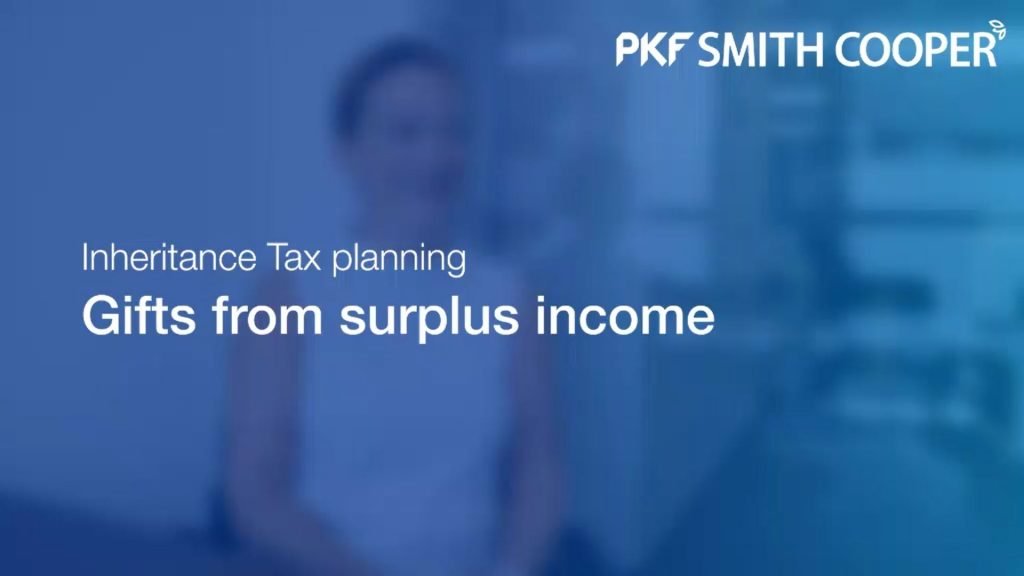Passing on wealth during your lifetime, and not just on death, is a priority for many.
If you have surplus income, you may wish to consider making financial gifts, which can allow you to provide financial support to your loved ones when they really need it, and allow you to see the benefits.
Making gifts from surplus income can be an underused, and valuable Inheritance Tax (IHT) relief, allowing you to pass on wealth efficiently, provided that you have sufficient income to take advantage of it.
What are the rules surrounding gifts from surplus income?
Lifetime gifts which qualify as part of your normal expenditure, made out of surplus income are exempt from IHT. This means that they fall outside of your estate immediately.
The following conditions must be met in order for a gift to be exempt as a gift from surplus income:
- The gift must be made as part of your normal expenditure
- It must be paid out on a regular basis
- It must be made out of your after-tax income
- You must be able to show that you had sufficient income after tax to cover all of your normal costs of living before any gifts were made
What is surplus income?
Surplus income is any remaining income you have left after all your outgoings have been paid.
The exemption only applies where the gifts are made from surplus income after tax, and examples of income include:
- Salaries
- Dividends
- Rental income
- Pensions
- Savings income (including ISAs)
- Payments from a trust
It is important to note that certain investments which produce regular payments do not count as income. This includes regular payments from life assurance investment bonds which will usually be considered to be capital payments.
How is normal expenditure defined?
In order to qualify for the exemption, normal expenditure is defined as what is usual for the individual donor, based on their specific circumstances.
Establishing a regular pattern of giving is key to being able to prove that the gifts form part of your normal expenditure.
However, there are some exceptions when it comes to regularity, and HMRC recognises that the value of a gift may vary due to certain factors. This includes variable pay from some income sources such as investment dividends, or changes to regular costs that the gift is being made to support, such as school fees.
If you have to rely on capital to meet your normal expenditure, the relief will not apply, as you will be unable to claim that the gifts were made from surplus income.
Making regular financial gifts
The simplest way to make regular financial gifts is to set up a regular standing order into the recipient’s bank account, which will also help to establish a regular pattern of giving.
Other options include setting up a pension plan or life insurance policy for the recipient where the regular premiums are paid for from your surplus income.
The importance of keeping records when making gifts from surplus income
If you would like to take advantage of this relief, and are looking to establish a pattern of giving, we would advise that you state this in writing, through a letter to the recipient(s) of the gift. This helps to keep an accurate record of the gifts made. If you die shortly after the start of making regular payments, having your intentions in writing will also make it more likely for HMRC to allow the exemption.
It is also vital to keep accurate records of your income and expenditure in order to be able to prove that you had surplus income available in any one tax year, and a record should be kept for at least two years prior to your first gift. HMRC will allow some limited carry forward of unused surplus income (which is useful where income fluctuates) but records would be needed to support this.
There are a number of different ways to make financial gifts from surplus income, for further advice on suitable options based on your individual circumstances, please get in touch with our specialist private client team.
Watch our video below where Private Client Partner Catherine Desmond explains more about making gifts from surplus income. This video is part of our wider Inheritance Tax planning video series, which can be viewed on our YouTube channel.





